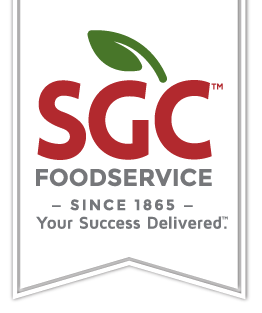In the bustling world of the food industry, restaurant owners and staff often focus on crafting delectable dishes and providing exceptional service. However, there's a fundamental aspect that forms the backbone of any successful restaurant: sanitation. This may seem obvious and may seem like an area that is a no brainer, however it never hurts to do a wellness check on your restaurant frequently, especially as the cooler months start to approach. Let’s explore the undeniable importance of restaurant sanitation and how it contributes to the health, reputation, and overall success of your establishment.
1. Safe Food, Happy Customers
Sanitation is the first line of defense against foodborne illnesses. By maintaining rigorous hygiene standards, you create a safe environment for both your customers and your staff. People visit restaurants not only for the taste of the food but also for the assurance that their health is in safe hands. Cleanliness in the kitchen and dining areas reassures customers that you prioritize their well-being. No one enjoys getting served with a dirty cup or plate, they want to not have to worry about those types of things when they are out and about eating. This goes for the food being prepared properly as well. When diners receive meals that are not fully cooked, they will get a bad taste in their mouth from the establishment and may result in not returning. A pleasant experience means they would return and give business again.
2. Building Trust and Credibility
A restaurant's reputation is built on more than just its menu. Word-of-mouth recommendations and online reviews are influenced by factors such as cleanliness and hygiene. A spotless restaurant signifies professionalism and attention to detail, instilling confidence in your patrons. In contrast, poor sanitation can lead to negative reviews, tarnishing your reputation and potentially driving customers away. There are a lot of factors that tie into a guest’s dining experience. Making sure each customer that walks through your doors has a meal that is not only delicious, but cooked to high standards with presentation is crucial.
3. Compliance with Regulations
Health and safety regulations are in place to safeguard public health. Non-compliance can result in penalties, closures, or even legal action. A well-maintained establishment that adheres to sanitation standards demonstrates commitment to compliance, avoiding legal troubles and ensuring the smooth operation of your business. If your business did not follow these guidelines, chances are the public would be the first to know about it and would then decide to not pay a visit. These regulations may seem easy to follow, but sometimes when a work day or week gets busy, things can fall behind and the lists are not checked as frequent.
4. Employee Well-being
Sanitation doesn't just benefit customers; it also supports the health and morale of your staff. A clean working environment reduces the risk of accidents, injuries, and illnesses. Moreover, employees are more likely to take pride in their workplace and their roles when they see that their employer prioritizes their well-being. When the weather begins to change and the cooler months approach, it is important to take these protocols serious as the spread of illnesses are more prevalent. Working in close quarters with staff means taking necessary precautions to avoid sickness and to maintain the cleanliness of the restaurant.
5. Prevention of Cross-Contamination
Cross-contamination is a significant concern in the restaurant industry. Proper sanitation practices, including the use of separate cutting boards and utensils for different food groups, prevent the spread of harmful bacteria and allergens. Having ample number of supplies will also help when cooking with raw and cooked items. By implementing these practices, you create a safer dining experience for customers with varying dietary needs.
6. Longevity and Sustainability
A well-maintained restaurant is more likely to stand the test of time. Equipment and infrastructure that are regularly cleaned and sanitized are less likely to deteriorate prematurely. This not only saves on maintenance costs but also contributes to a more sustainable business model. Usually, the more work put into the maintenance now, results in the longer length of lifetime. Regular sanitation practices can lead to cost savings in the long run. Preventing pest infestations, avoiding health department fines, and reducing the need for extensive cleaning or repairs all contribute to a healthier bottom line.
7. First Impressions Matter
The moment a customer enters your restaurant, their first impression is formed by the ambiance and cleanliness. A sparkling clean dining area and welcoming restroom can set the tone for a positive dining experience. Remember, a visually appealing environment enhances the overall perception of your restaurant.
Restaurant sanitation is not just a routine task; it's a fundamental pillar that upholds the integrity of your business. From ensuring the safety of your customers and staff to building a strong reputation, the importance of maintaining high sanitation standards cannot be overstated. By investing time, effort, and resources into proper sanitation practices, you're not only safeguarding your restaurant's success but also contributing to the overall well-being of your community.

_enubxpeo.jpg)